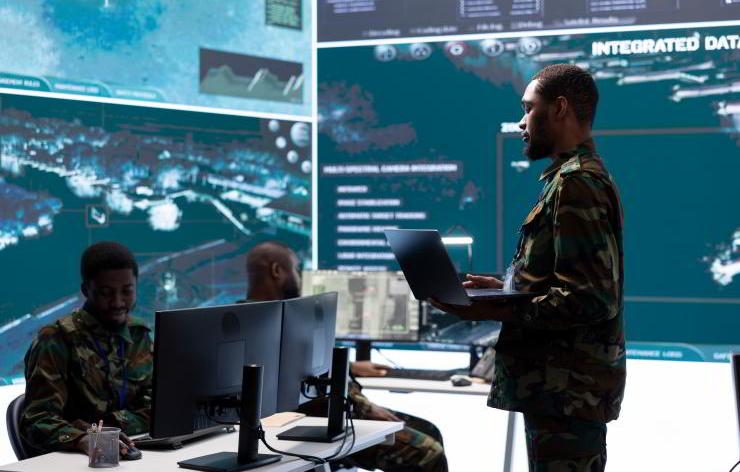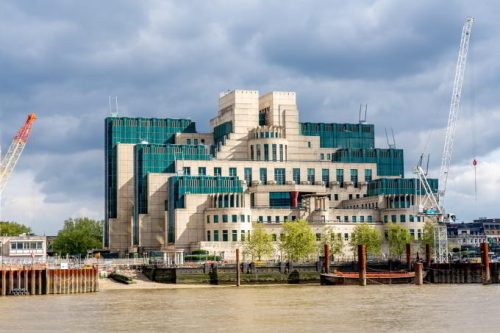Towards an African intelligence model ?

Investments that are lower by more than half the global average, a lack of coordination and cooperation plans between the intelligence agencies of the various countries. The risk of being at the service of the political elite of the moment. Little attention to cybersecurity. We discuss this with Annette Hübschle, research director of the Global Risk Governance Programme at the University of Cape Town Law School (South Africa).
Many African countries allocate less than 1% of their national budgets to strengthening their intelligence agencies, compared to the global average of 2%. Would investing more resources be enough to improve their performance?

Annette Hübschle, research director of the Global Risk Governance Programme at the University of Cape Town Law School.
Low resources are certainly an aspect that needs to be considered. But increasing them alone will not allow African countries to address and solve deeper systemic challenges. There are legitimate concerns about the misuse of intelligence resources, often used, for example, to spy on political opponents or to safeguard the interests of ruling elites rather than addressing urgent threats to national and regional security. To improve in this area, African countries need to equip themselves with more transparent oversight mechanisms, assign clearer mandates to their intelligence agencies, and build internal know-how to address shared threats such as terrorism, organized crime,
and cyberattacks.
Among the challenges to be faced is the need to coordinate and cooperate more. Are there plans in the continent that go
in this direction?
Lack of coordination and cooperation within individual states and between country agencies often reflects broader issues of mistrust, political rivalries and divergent national interests. Addressing these issues requires more than just technical solutions. It requires political will, shared governance visions and defined accountability systems. Strengthening regional platforms, such as the African Union’s Peace and Security Council (PSC), could help incentivise greater collaboration. However, care must be taken to ensure that intelligence sharing is not misused to target political dissidents or suppress opposition movements, as has been seen in several instances on
the African continent.

British Secret Intelligence Service building, known as MI6, London. The concept of aligning with “Western standards” deserves critical scrutiny. 123rf
Which African state has the most advanced intelligence services approaching Western standards?
The concept of aligning with “Western standards” deserves critical scrutiny. Why should African intelligence agencies aspire to adopt models that may not be appropriate to the specifics of their socio-political realities? Instead, African intelligence should develop its own standards of excellence, focusing on principles such as civil society engagement, human rights protection, and the challenges of ensuring national and local security. This approach could offer lessons to Western standards, not the other way around.
How are African intelligence agencies investing in cybersecurity? Are some countries more advanced than others?
Cybersecurity is emerging as a growing priority on the continent, although currently only for a few intelligence agencies.
This leaves significant disparities between countries, with levels of investment and growth in domestic expertise varying significantly. Countries such as Kenya and South Africa have made great strides in this area. However, even in these countries, there can be risks, with tools and resources put to use in cybersecurity that could be misused to spy on political opponents or civil society activists. Investments in this area must always be accompanied by strong ethical and legal safeguards to prevent potential abuse.

There are legitimate concerns about African countries’ sovereignty and the imposition of external directives. 123rf
Is the influence of extra-continental actors, from the United States to Israel, from Russia to China, on African intelligence services,
still too great?
Foreign influence in Africa is a complex issue. Partnerships with countries such as the United States, China or Israel can provide African countries with technical support and resources. At the same time, there are legitimate concerns about African countries’ sovereignty and the imposition of external directives. Sometimes these partnerships can exacerbate rather than resolve domestic challenges, such as strengthening regimes that abuse intelligence services to suppress dissent. African countries need to critically evaluate their relationships with these powers, ensuring that their involvement with these partners is in line with their national interests and that these partnerships help them develop internal capacities to reduce their dependence over time. (Open Photo: 123rf)
(R.B.)



